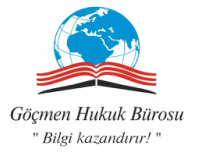8.10.2015 tarihli Kharlamov v. Russia başvurusunda, üniversite profesörü Bay Karlamov, üniversitenin yönetim kurulunun seçim prosedüründeki eksiklikler nedeniyle meşru olamayacağını ifade etmiştir. Bunu takiben, ona karşı işvereni Orel Devlet Teknik Üniversitesi tarafından hakaret ile ilgili adli bir dava açılmıştır. AİHM’ye göre, yerel mahkemeler, Bay Karlamov aleyhine aldıkları kararda, akademik ilişkilerin spesifik özelliklerini göz önüne almamıştır. Özellikle, bir üniversitenin Sözleşme uyarınca itibarı, bir bireyinki ile aynı kabul edilemez. Yerel mahkemeler, bir üniversitenin itibarını koruma ihtiyacı ile Bay Karlamov’un akademik hayatın organizasyonu hakkındaki düşüncesini ifade etme özgürlüğü arasında adil bir denge tutturamamıştır. Bu nedenle, AİHS md. 10 ihlal edilmiştir.
Kharlamov v. Russia kararı, “http://hudoc.echr.coe.int/” adresinden erişilebilirdir.
Kharlamov v. Russia kararının basın duyurusu,
“http://hudoc.echr.coe.int/app/conversion/pdf?library=ECHR&id=003-5193340-6429082&filename=Judgment%20Kharlamov%20v.%20Russia%20-%20right%20to%20reputation%20of%20a%20university.pdf” adresinden erişilebilirdir.
Bu basın duyurusunun özeti, İngilizce haliyle, aşağıdaki gibidir:
A university’s right to reputation under the European Convention is more limited than that of an individual’s
In today’s Chamber judgment1 in the case of Kharlamov v. Russia (application no. 27447/07) the European Court of Human Rights held, unanimously, that there had been:
a violation of Article 10 (right to freedom of expression) of the European Convention on Human Rights.
The case concerned a civil action in defamation brought against Mr Kharlamov, a university professor, by his employer, Orel State Technical University, after he expressed the view that the University’s governing body could not be considered legitimate due to shortcomings in the election procedure.
The Court found that the domestic courts, in their decisions against Mr Kharlamov, had notably failed to take into account the specific features of academic relations. In particular, the protection of a university’s authority or reputation under the Convention could not be equated to that of an
individual’s. Focusing their attention entirely on Mr Kharlamov’s description of the elected senate as illegitimate, the domestic courts had therefore failed to strike a fair balance between the need to protect the University’s reputation and Mr Karlamov’s freedom to express his opinion on the organisation of academic life.

 RSS Feed
RSS Feed